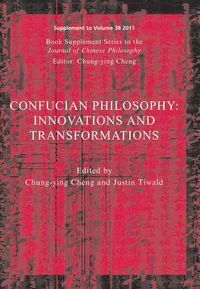
endast ny
Confucian Philosophy Upplaga 1
In Chinese tradition Confucianism has been always both a philosophy of moral self-cultivation for the human individual and an ideological guide for political institutional policy and governmental action. After the May 4th Movement of 1919 (WusiYundong ), Confucianism lost much of its moral appeal and political authority and entered a kind of limbo, bearing blame for the backwardness and weakening of China. Now that China has asserted its political rights among world nations, it seems natural to ask whether Confucianism as a philosophy has a modern or even postmodern role to play for building modern China and for enlightening the world. This question is even more meaningful in light of the fact that there is a genuine need felt in China for a return to its Confucian heritage and vision for purposes of sustaining societal harmonization and reconstructing cultural identity in the modern world.
Upplaga: 1a upplagan
Utgiven: 2012
ISBN: 9781118364338
Förlag: John Wiley & Sons
Format: Häftad
Språk: Engelska
Sidor: 250 st
In Chinese tradition Confucianism has been always both a philosophy of moral self-cultivation for the human individual and an ideological guide for political institutional policy and governmental action. After the May 4th Movement of 1919 (WusiYundong ), Confucianism lost much of its moral appeal and political authority and entered a kind of limbo, bearing blame for the backwardness and weakening of China. Now that China has asserted its political rights among world nations, it seems natural to ask whether Confucianism as a philosophy has a modern or even postmodern role to play for building modern China and for enlightening the world. This question is even more meaningful in light of the fact that there is a genuine need felt in China for a return to its Confucian heritage and vision for purposes of sustaining societal harmonization and reconstructing cultural identity in the modern world.
Ny bok
457 kr481 kr
5% studentrabatt med Studentapan
Begagnad bok (0 st)
Varje vecka tillkommer tusentals nya säljare. Bevaka boken så får du meddelande när den finns tillgänglig igen.



